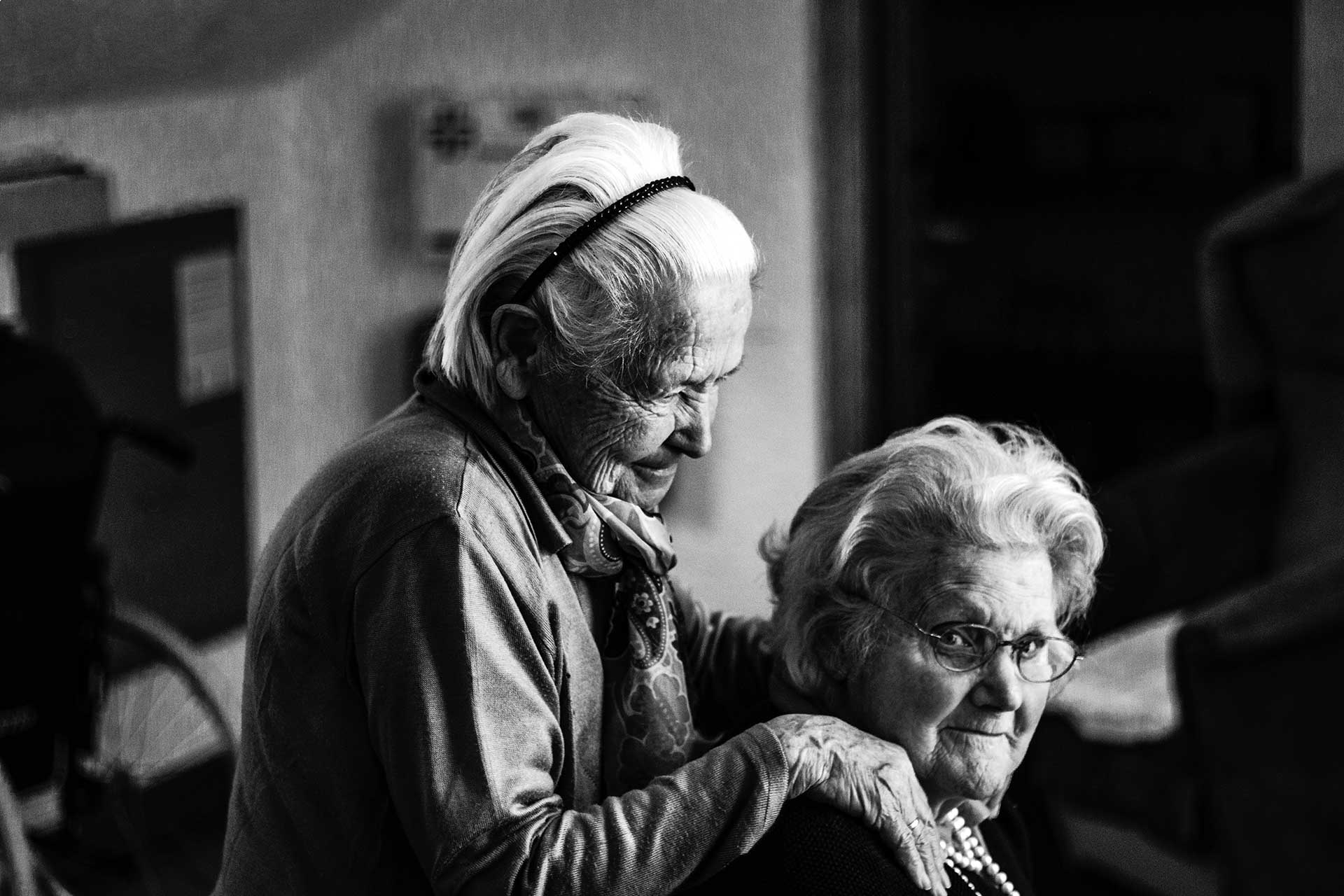Social work research – LGBTI ageing
/prod01/channel_8/media/scu-dep/research/images/social-work-720-475.jpg)
Background
Research on lesbian, gay, bisexual, transgender and intersex (LGBTI) ageing is relatively new in the Australian context, only gaining the attention of researchers, policy makers and service providers since the early 2000s. The body of research work undertaken in this field by Professor Mark Hughes has developed in parallel with wider reforms occurring in the community around LGBTI rights both generally and in the aged care system.
Mark's various research endeavours have a common focus on improving the quality and effectiveness of service delivery to LGBTI older people. The approach taken throughout these projects was to work closely with community organisations and service providers so they had input into developing research priorities and were able to implement the research findings.
Overview of Impact
The impact of this work can be seen in the areas of policy, legislation and service delivery.
The work has been cited in numerous submissions to public inquiries such as the Productivity Commission Inquiry into Caring for Older Australians (2011), the National Safety and Quality Framework in Australian Health (2010) and the Senate Inquiry into Suicide in Australia (2010). Mark gave evidence at the Senate Inquiry into the Exposure Draft of the Human Rights and Anti-Discrimination Bill (2013), leading to the reform of the Sex Discrimination Act, which removed the capacity of religious providers of aged care to discriminate on the basis of sexual orientation or gender diversity.
Findings from Mark’s research have been cited in government strategy documents and reports (e.g. findings on the fear of discrimination in accessing services were cited in the South Australian Strategy for Inclusion of LGBTIQ People 2014-2016). Four publications were included in the key reading list of the National LGBTI Ageing and Aged Care Strategy (2012).
Service providers have included these research findings in numerous reports, training materials and strategic planning documents. For example AIDS Council of NSW (ACON) Health Outcome Strategy, VicHealth (guidance on advance care planning resource) and the Royal Australian and New Zealand College of Psychiatrists (Position Statement on ‘recognising and addressing the mental health needs of the LGBTI population’).

Mark's early research in this field focused on sexual identity and its negotiation in health and aged care settings. In 2002 he conducted a small project with ACON on older gay men’s views on how their sexuality should be discussed with social workers, and the response of the profession to these views. Sexual identity in health and aged care was explored in a further qualitative study (2004-2006), which revealed concerns about discrimination, direct and indirect. Findings from this work were incorporated into training programs and information resources, such as the GRAI report on Retirement Accommodation and Aged Care Issues for Non-Heterosexual Populations (2010).
In the 2010s Mark worked with community organisations in Queensland and New South Wales to further the research in this field. With the Queensland AIDS Council (QAHC) he surveyed LGBTI Queenslanders’ experiences and expectations of aged care services. This work identified a high level of concern that sexuality and gender identity would affect service delivery along with the potential for discrimination. These findings informed QAHC training materials, and publications reporting the findings were used by ACON in their Health Outcome Strategy 2017-20 and were included as key resources in the National LGBTI Ageing and Aged Care Strategy (2012). With funding from Evergreen Life Care, he surveyed the health and wellbeing of LGBTI people aged 50+ in NSW and found higher levels of loneliness and psychological distress than typically found in the general population. The research led to the development of personal training programs for LGBTI older people by the Australian College of Physical Education and was cited in reports and training by Dementia Australia and Carers Australia.
Mark also collaborated with Emeritus Professor Colleen Cartwright on publishing research on LGBTI people’s knowledge of and attitudes towards end-of-life care. This research demonstrated limited understanding of legal protections among LGBTI communities despite the significance of these rights in promoting their rights, such as when having lost decision-making capacity. These publications have been widely used in guidance and training on end-of-life care and advance care planning (e.g. by Dementia Australia).
More recently Mark has been continuing to research the health disparities faced by older LGBTI Australians. This has included an ARC grant ($296,594, LP160100221), led by La Trobe University, and involving Australian and international university partners and industry stakeholders (SANE Australia, Carers Australia and COTA Australia). The aim is to develop resources for policy makers and service providers to enable improved health outcomes for this population.
Acknowledgment: This case study is based on one reported in the Advancing Social Work Research Project (ARC DP170102142), led by Professor Clare Tilbury at Griffith University and including Professor Mark Hughes (Southern Cross University), Professor Christine Bigby (La Trobe University) and Professor Mike Fisher (University of Bedfordshire): https://www.griffith.edu.au/criminology-institute/our-research/our-projects/social-work-research

/prod01/channel_8/media/scu-dep/current-students/images/Coffs-harbour_student-group_20220616_33-147kb.jpg)
/prod01/channel_8/media/scu-dep/current-students/services/counselling/images/RS21533_English-College-Student_20191210_DSC_6961-117kb.jpg)
/prod01/channel_8/media/scu-dep/study/scholarships/images/STEPHANIE-PORTO-108-2-169kb.jpg)
/prod01/channel_8/media/scu-dep/study/arts-and-humanities/images/RS20958_Chin-Yung-Pang-Andy_20190309__79I5562-960X540.jpg)
/prod01/channel_8/media/scu-dep/experience/images/SCU-INTNL-STUDY-GUIDE-280422-256-72kb.jpg)
/prod01/channel_8/media/dep-site-assets/component-library/screenshots/online-1X1.jpg)